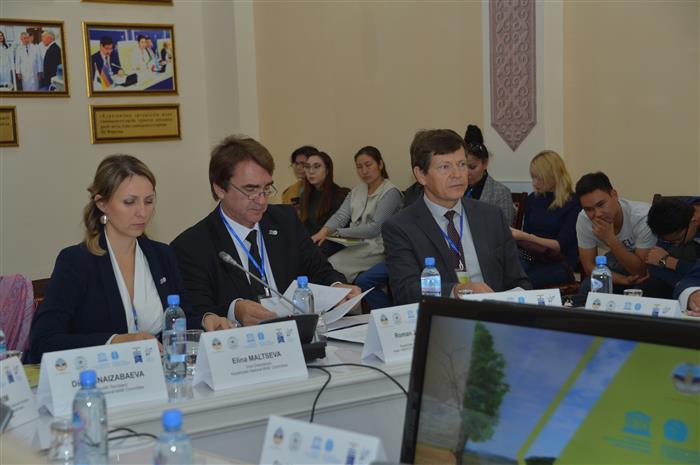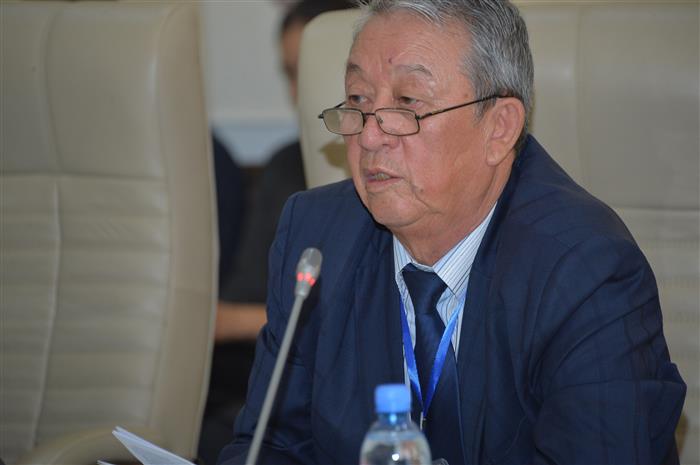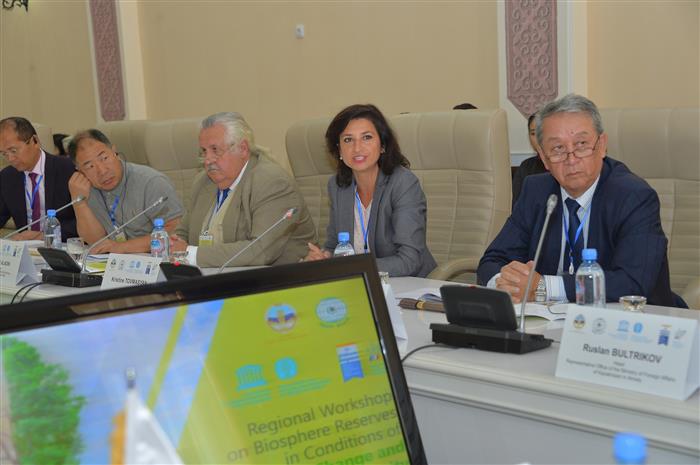- Main page
- News
Biosphere Reserves in Conditions of Climate Change and Loss of Biodiversity
9/26/2018
1st Regional Meeting of the Islamic Educational, Scientific and Cultural Organization (ISESCO) devoted to development of biosphere reserves will be held in Al-Farabi Kazakh National University (Almaty City) from 24th to 26th September 2016.
The 1st Regional Meeting of the Islamic Educational, Scientific and Cultural Organization (ISESCO) devoted to promotion of the Islamic network of Biosphere Reserves was organized on 24-26 September 2018 in Almaty, Kazakhstan by ISESCO and Al-Farabi Kazakh National University with support of Kazakhstan National Commission for UNESCO and ISESCO and Kazakhstan National MAB Committee. The theme of the meeting was “Biosphere Reserves in Conditions of Climate Change and Loss of Biodiversity”. Representatives from 10 ISESCO member states, as well as experts from China, Russia and UNESCO office in Almaty attended the meeting. The Kazakhstan was represented by numerous experts of MAB Programme, including members of Kazakhstan MAB National Committees, biosphere reserve (BR) managers and professors and master/PhD students of UNESCO Chair on Sustainable Development under Al-Farabi Kazakh National University.
The aim of the meeting were an introduction of the Lima Action Plan and a discussion on the ISESCO strategy for its implementation in the islamic world, taking into consideration the regional potential, concerns and realities as well as working out the successful approaches in the implementation of the Lima Action Plan in the context of the islamic world. The discussions were devoted to 1) share experiences on national achievements and current situation with biosphere reserves by exchanging existing practices and experiences in order to enhance biosphere reserve management in the countries concerned and to address the issues and impacts of climatic change and loss of biodiversity, 2) identify common challenges to biosphere reserves, concerning issues such as Climate Change and Loss of Biodiversity and methods to overcome those challenges, 3) indicate priority areas of the Lima Action Plan for the respective countries, 4) work out common approaches with focus on the collaborative project ideas, 5) enhance capacity of countries to establish and manage their biosphere reserves according to best possible approaches for conservation and sustainable development through strengthened network and regional cooperation at all levels.
The meeting was attended by about 50 participants including those ISESCO member states: Azerbaijan (1), Indonesia (1), Kazakhstan (numerous), Kyrgyzstan (1), Morocco (1), Pakistan (1), Turkey (1), Tajikistan (1), Uzbekistan (1), as well as participants from China (2) and Russia (1). Kazakhstan host country was represented by members of National Commission for UNESCO and ISESCO and National MAB committee besides experts from universities, BRs and other institutions. Representatives from UNESCO and IUCN attended the meeting.
The ISESCO meeting took note of the outcome documents of the 4th World Congress of Biosphere Reserves, held in March 2016 in Lima, Peru which focused on the Lima Action Plan (LAP) for Biosphere Reserves for 2016-2025, “A New Vision for the Decade 2016-2025:UNESCO Biosphere Reserves for Sustainable Development” and the recent global agreements such as 2030 Agenda for Sustainable Development and Sustainable Development Goals (SDGs).
The ISESCO meeting discussed the progress and challenges related to BRs presented in country presentations and decided to work together in line with the MAB Strategy and Lima Action Plan and recommended that MAB National Committees make sure that their own strategies are using the MAB Strategy and LAP as the key points of reference. These should be founded in national and regional realities and imperatives to contribute to the LAP at the regional and global level. ISESCO will provide necessary support to Member States in designing their national strategies and actions in line with LAP.
At third and last day of the meeting all international participants with representatives of Kazakhstan National Committee and UNESCO Chair for Sustainable development (Al-Farabi KazNU) were invited to visit Charyn Biosphere Reserve that was included to the World Networtk of Biosphere Reserve at the end of July 2018. Experts visited Charyn river canyon and ancient ash forest and took part in a short field seminar devoted to achievements of this Biosphere Reserve. The workshop results as recommendations will be published soon.
UNESCO Chair in Sustainable Development



